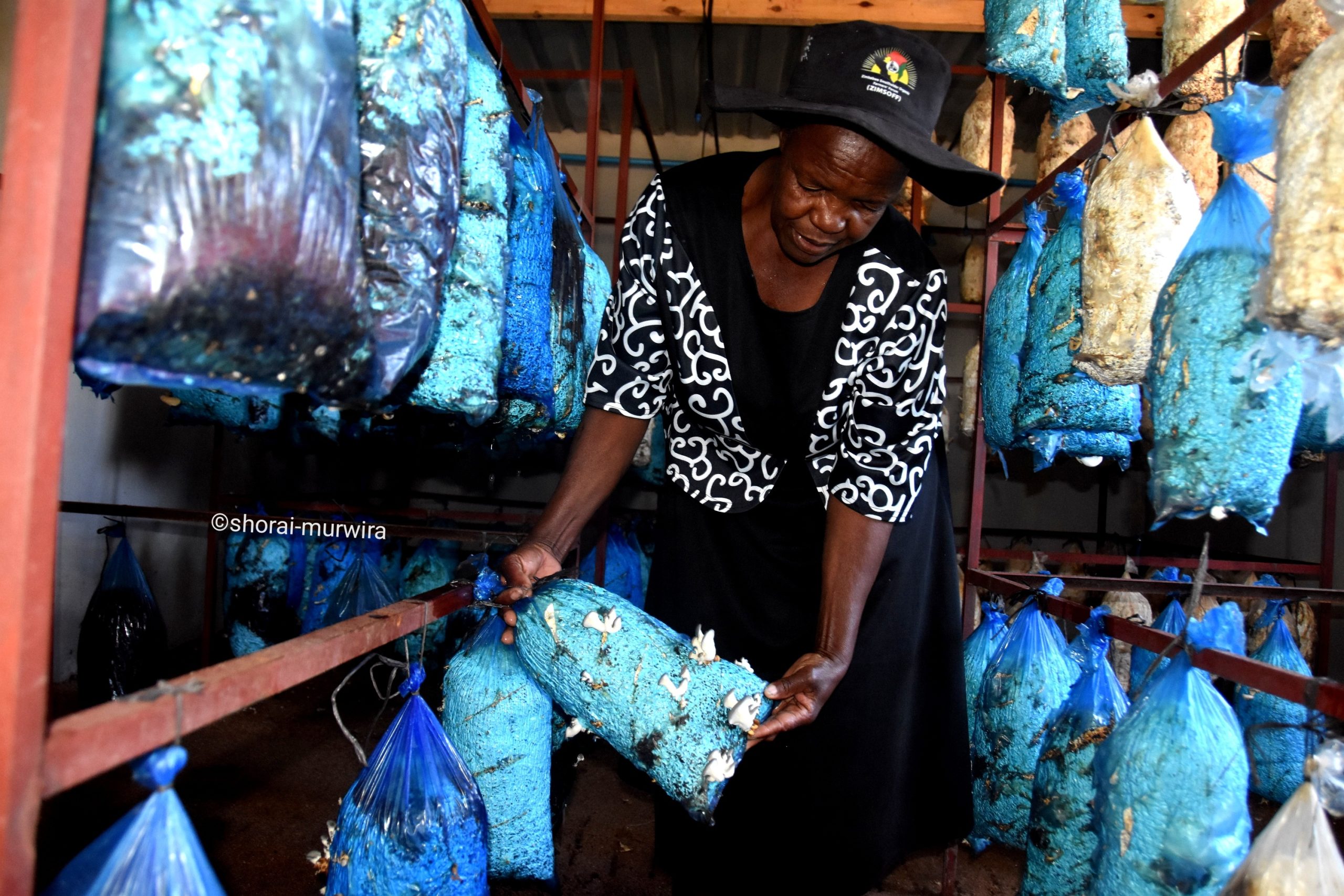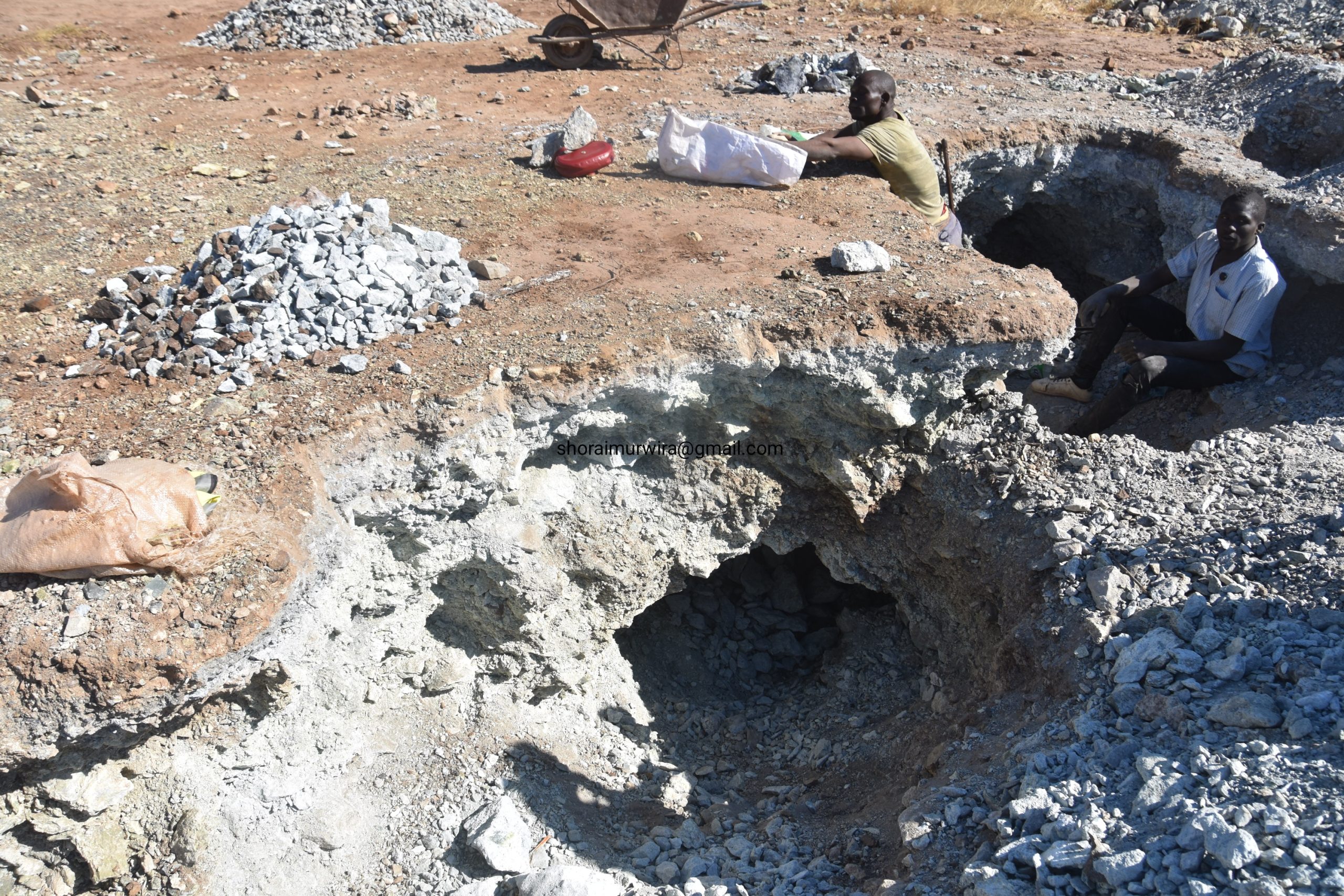When the U.S. administration abruptly halted aid to Africa last year, countless lives were affected.
Among them was Plaxedes Kaseke (62) a soft-spoken yet determined woman from Gosha village in Zimbabwe’s Goromonzi district.
She lost her job with a local NGO that had been implementing food security and community empowerment programmes. With five grandchildren to feed and no stable income, her future seemed to hang in limbo.
“At first, I was devastated. I kept asking myself, what now? Where would I even start?” she said, recalling the day she received her termination letter.
Kaseke said that she can not ask for help from her children because they are working but due to economic challenges, they are also looking up to her for help.
Her initial attempts to fall back on maize farming yielded little. The village, like much of Zimbabwe, had suffered erratic rains and severe water shortages linked to prolonged dry spells of 2024 and shifting climate patterns.
“We planted, but nothing came out. The ground was too dry. It was just a waste of seed,” she lamented.
But today, hope sprouts in the dark, humid corners of a simple structure behind her home, a mushroom house.
Mushroom farming was not part of Plaxedes’ original plan, but a training program initiated by Zimbabwe Land Agrarian Network (ZILAN) and supported by We effect, Widen Sverige.
She and a group of other unemployed local women were introduced to oyster mushroom production. The crop’s minimal water requirements, short harvesting cycle, and high market demand made it an attractive alternative.
With technical guidance and shared resources, they learned to sterilize compost, inoculate bags with spores, and maintain humidity levels for optimal growth.
“Within three weeks, we had our first harvest,” she said her face lighting up. “And that was the turning point.”
The women now produce up to 10 kilograms of mushrooms per week. A kilogram fetches between US$3 and US$5 at local markets and supermarkets in nearby towns.
The profits are shared among the women, reinvested into the project, and used to cover household expenses.
In a region increasingly affected by El Niño-induced droughts, mushroom farming offers a lifeline.
Unlike conventional crops, mushrooms do not require open land or large volumes of water. They grow in recycled agricultural waste including maize stalks, sawdust, and cotton seed husks inside shaded structures that are kept moist.
What started as a survival strategy has grown into a symbol of women’s resilience and ingenuity.
The group of 12 women, are working on expanding the project by building a second mushroom house and tapping into Harare’s growing organic food market.
“We never imagined this could transform our lives,” said Rumbidzai Mupfuti, another member of the group. “Now we’re even thinking of value addition, drying mushrooms, making mushroom soup packets, and training others.”
Beyond economic empowerment, the project has sparked confidence and leadership among the women. Kaseke , once reluctant to speak in public, now coordinates logistics and liaises with potential buyers.
“I have learned that when one door closes, another really does open,” she said. “Sometimes, that door is covered in spores.”
“This is not just about mushrooms,” she said. “It’s about survival. It’s about turning nothing into something. And it’s about women refusing to give up.”









